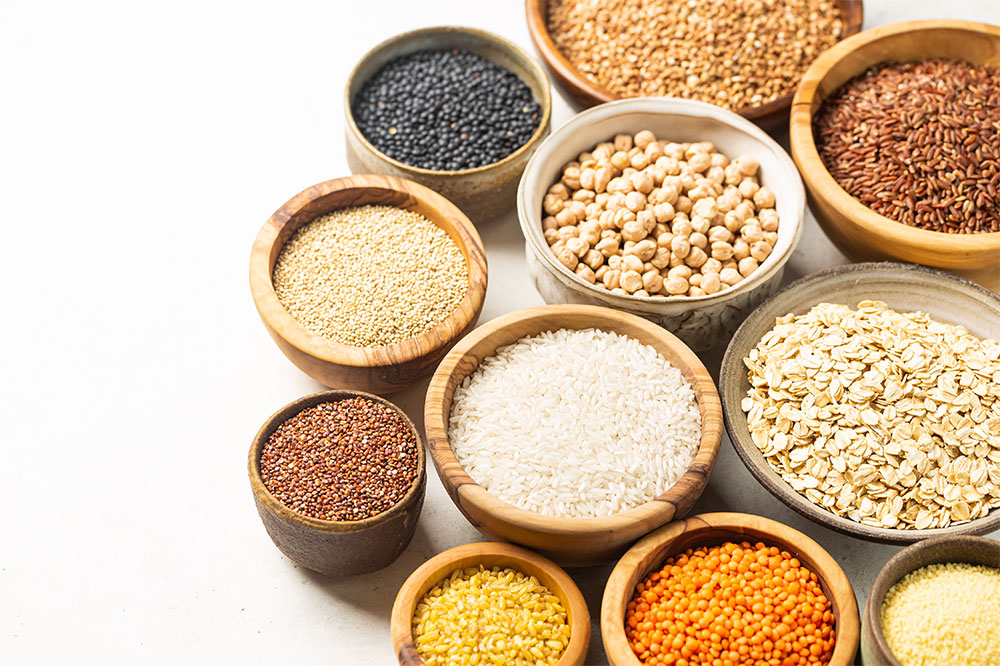
7 gut-friendly foods to eat
Be it a temporary stomach problem or flare-up of a chronic condition, it is important to eat foods that are good for one’s gut health. The digestive system breaks food down into vitamins, minerals, and other nutrients that provide energy to the body. Certain foods help improve gut health, thus making the digestion process smoother and alleviating abdominal pain, bloating, and nausea. Here’s a list of gut-friendly foods to include in your food regime.
Whole grains
Whole grains such as wheat, barley, buckwheat, quinoa, and brown rice are rich in fiber and promote the movement of food through the digestive tract, resulting in quick and easy digestion. Experts recommend including fiber in daily meals to keep chronic digestive or gastrointestinal issues at bay. Compared to refined carbohydrates, such as white bread and pasta, whole grains contain higher amounts of fiber and several beneficial nutrients. When bacteria in the stomach ferment fiber, they produce short-chain omega-3 fatty acids, which help improve gut health.
Leafy greens
Leafy greens are yet another excellent food for gut as they are packed with insoluble fiber and nutrients like folate, vitamin C, vitamin K, and vitamin A. Studies suggest that leafy greens contain sulfoquinovose, a sugar that may feed healthy gut bacteria and promote digestion. The high magnesium content in these vegetables improves muscle contractions in your digestive tract, thus relieving constipation. If you have any stomach condition, consider making leafy vegetables—kale, spinach, Brussels sprouts, broccoli, collard greens—a part of your daily meals.
Ginger
Ginger is not only anti-inflammatory but also used to treat various stomach problems caused by temporary or chronic conditions. It is considered as one of the best foods for gut as it can speed up food’s movement through the digestive tract, thus reducing the risk of gastrointestinal problems. Ginger is a versatile ingredient, so incorporating it into daily meals is easy. It can be used for flavoring meals or you can prepare a soothing ginger tea by adding sliced ginger to boiling water and allowing it to steep for about 15 minutes. Fresh grated ginger can also be added to soup, stews, and smoothies to enhance flavor and make them gut friendly.
Yogurt
Yogurt is one of the most beneficial foods for gut because it contains healthy bacteria called probiotics that are good for gut. They help improve digestion and keep the gut healthy. While probiotics naturally occur in your stomach, it is best to increase their level when you are experiencing symptoms of a stomach condition. This gut-friendly bacteria can not only resolve digestive issues like bloating, constipation, and diarrhea but also improve the digestion of milk sugar called lactose. It is crucial to know that not all yogurt feature probiotics; you can identify yogurt with probiotic content by looking for the label “live and active cultures” on the package. However, if you are not a yogurt fan, look for probiotic alternatives like kefir, kombucha, sauerkraut, miso, tempeh, and kimchi.
Pulses
These fiber-rich foods are good for gut health as they promote digestion and reduce constipation. Pulses such as kidney beans and broad beans contain a resistant starch that acts as a mild laxative and aids stool passage through the colon. Lentils, chickpeas, and peas are the other common pulses that are also rich potassium and zinc.
Oats
Oats are not only heart-healthy but also considered as good food for gut health. Including oats in daily meals can provide bulk to the bowel. This is because oats are rich in soluble fiber. Oats also increase the satiety value of food, aid in the cultivation of good gut bacteria, and help relieve constipation.
Fruits like bananas, papayas, apples
Fruits are one of the best foods for gut. Along with fiber, certain fruits are packed with vitamins and minerals such as vitamin C and potassium, which help digestion. Papaya, apples, oranges, grapefruits, and bananas are some fruits that are known to improve digestion and relieve stomach conditions. Papaya contains a digestive enzyme called papain, which helps in the digestion of protein fibers. Experts say that papaya can also help reduce constipation and bloating associated with stomach conditions like irritable bowel syndrome (IBS). Apples, on the other hand, contain a high amount of soluble fiber called pectin, which helps increase stool volume and alleviate constipation and diarrhea. Prunes is another food that is beneficial for gut, as it contains phenolic and sorbitol compounds, which have multiple gastrointestinal benefits. Furthermore, prunes help increase the frequency of bowel movements, thus improving stool consistency and water absorption capacity.




